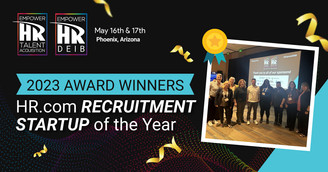The Human Voice in Recruitment Marketing
In a world increasingly dominated by AI and automation, the significance of human interaction and transparency in recruitment has never been more critical. As recruitment marketing and employer branding evolve, the integration of AI tools offers unprecedented efficiencies and capabilities in attracting top talent. However, amidst these technological advancements, maintaining a human touch in recruitment processes emerges as a paramount strategy for organizations aiming to stand out and forge genuine connections with potential candidates.
The human voice in recruitment marketing transcends mere personal interaction; it represents authenticity, empathy, and a nuanced understanding of candidate needs and aspirations. In an age where job seekers are inundated with automated job descriptions and impersonal application processes, the infusion of human elements into recruitment marketing can significantly differentiate an employer brand.
Building Trust Through Transparency
Trust and transparency are foundational to effective recruitment marketing strategies. Candidates seek not only opportunities but also insights into company culture, values, and the reality of working environments. By leveraging human voices—be it through video interviews with current employees, behind-the-scenes looks at the workplace, or personalized messages from hiring managers—organizations can provide a transparent view into what it truly means to be part of their team. This authenticity builds trust, a critical component in attracting and retaining top talent.
Showcasing Human Stories
Humans relate to stories far more deeply than to facts or job descriptions alone. Storytelling, therefore, becomes a powerful tool in recruitment marketing. Showcasing the journeys, achievements, and day-to-day experiences of current employees not only humanizes an organization but also illustrates potential career pathways and growth opportunities within. These stories shared through social media, blogs, and other digital platforms, allow candidates to envision themselves in similar roles, fostering a personal connection to the company.
Embracing Diversity and Inclusion
The human voice is instrumental in highlighting an organization’s commitment to diversity and inclusion. By giving a platform to diverse employee voices, companies can showcase their inclusive culture, appealing to a broader range of job seekers. This approach not only enriches the employer brand but also demonstrates a genuine commitment to creating a diverse and welcoming workplace.
Leveraging Technology for High-Touch Hiring
The advent of new technologies offers innovative ways to bring the human element to the forefront of recruitment marketing. AI and automation should not replace the human touch; instead, they should be used to enhance it. Tools such as video interviewing software, AI-driven personalized communication, and social media platforms provide unique opportunities to maintain human-centric recruitment practices at scale.
Personalization at Scale
AI-driven tools enable personalized communication with candidates at every stage of the recruitment process, from initial contact to onboarding. Personalization shows candidates that they are valued as individuals, not just as applicants, reinforcing the human aspect of recruitment.
Real-Time Engagement
Technologies like chatbots and AI-driven platforms can facilitate real-time interactions, providing immediate responses and assistance to candidates’ inquiries. When used appropriately, these tools complement the human element by ensuring that communication is continuous and responsive, enhancing the candidate experience.
The Takeaway: The Irreplaceable Value of the Human Element
In the digital age, where AI and automation are omnipresent, the human voice and transparency stand as pillars of effective recruitment marketing. By fostering authentic communication, showcasing real stories, and leveraging technology to enhance personal interactions, organizations can attract and engage top talent in meaningful ways. The future of recruitment lies not in replacing the human element but in amplifying it, ensuring that human resources remain, at their core, profoundly human.



